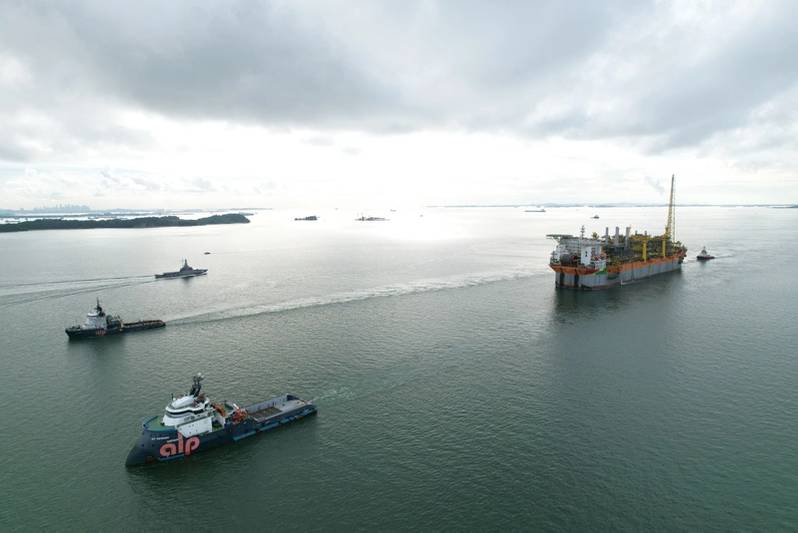Previous container shipping cycles tended to end in vicious rate-cutting grabs for market share. In 2021, the most extraordinarily profitable year in liner history, rate topping rather than cutting is happening.
France’s CMA CGM shocked fellow liners yesterday by publicly announcing it will stop all spot rate increases through to the beginning of February. The liner, led by Rodolphe Saade (pictured with the French president last week), said the preemptive move was designed to prioritise its long-term relationship with customers in the face of an “unprecedented situation” in the shipping industry.
Lost in all the excitement is the fact that rates will remain sky-high
The rates announcement will stand for all the group’s brands including CNC, Containerships, Mercosul, ANL and APL.
Drewry’s composite World Container index increased by 1% or $97 to $10,083.84 per 40ft container yesterday, 309% higher than the same week in 2020.
CMA CGM recently recorded a record EBIT of $3.81bn for the second quarter, firmly putting it on track to post its greatest ever annual results.
Pouring cold water on the announcement, German liner Hapag-Lloyd insisted it had actually done similar for a number of weeks already.
“We have been doing this for some weeks and for the time being. We also believe that spot rates have peaked and we do not pursue further increases. We hope that the market will slowly start to calm down,” Tim Seifert, director of corporate communications at Hapag-Lloyd, told Splash today.
Commenting via LinkedIn on the surprise tactics by CMA CGM, the world’s third largest carrier, Bjorn Vang Jensen, vice president at container consultancy Sea-Intelligence, predicted some coffee will have been spilled in carrier boardrooms across the globe.
“One cannot but admire this brilliantly executed and deliciously diabolical ‘heads I win, tails you lose’ move,” Jensen wrote, going on to explain: “Worst case, CMA in isolation looks like a hero. Best case, the industry will be forced to follow – in which case CMA still looks like a hero. And best of all: lost in all the excitement is the fact that rates will remain sky-high, they just won’t increase further!”
A new container shipping report from BIMCO this week noted: “Years of low freight rates resulting in rigorous cost cutting by carriers have left them in a great position to maximise profits now that the market has turned. Looking to the future, they have proven adept at using their upper hand at the negotiating table to lock shippers into longer-term contracts at today’s higher freight rates.”
The Shanghai Containerized Freight Index (SCFI) – a key spot pricing benchmark – rose by another 65.51 points today to hit a new all-time high of 4502.65 points.













